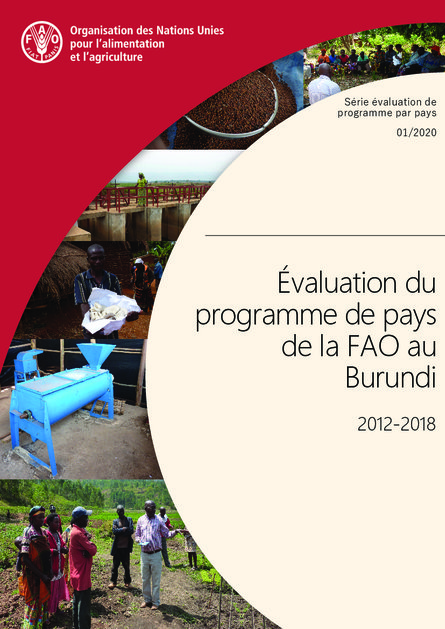
Nearly 65 percent of Burundi’s population lives below the poverty line, ranking it 184th on the World Bank’s 188-country Human Development Index in 2016. After a prolonged civil war, Burundi is suffering from high levels of food and nutrition insecurity and a fragile social context. Renewed unrest since the controversial presidential election of 2015 has caused major population displacement, the suspension of much international aid and a worsening of the already dire economic situation. FAO’s 2011 Country Programming Framework (CPF) was designed as a post-crisis response, but has had to turn to emergency operations. The evaluation noted a recent shift to medium-term projects, but the country would benefit from more resilience-oriented programming to bridge the gap between crisis management and development. The new CPF presents an opportunity to strengthen the coherence of interventions and to strike a better balance between fieldwork and institutional support. FAO should liaise with Burundi’s government, technical and financial partners to ensure that agriculture, the country’s main source of income, is a core priority.
